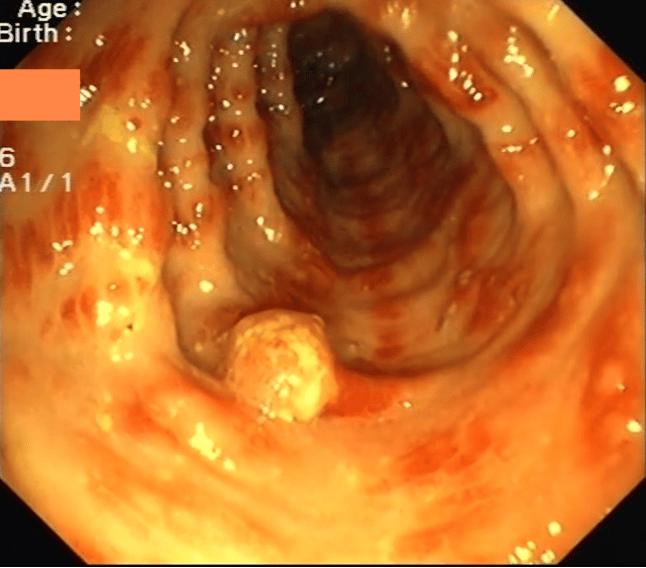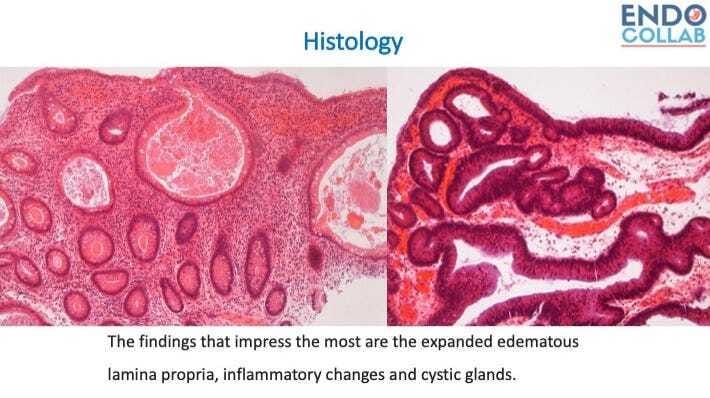Cronkhite Canada Syndrome (CCS)

A 48-year-old woman presented with chronic diarrhea and loss of taste. On clinical exam she appeared pale, had brittle nails and had partial hair loss. She was found to have severe iron deficiency anemia.
Colonoscopy showed multiple reddish, edematous mucosal streaks and polyps and pseudopolyps ranging from 5 to about 20 mm. On EGD the stomach was characterized by enlarged mucosal folds, pseudoplyps and duodenal mucosal atrophy. Histology showed the above findings (see figure 2).
CCS is a non-hereditary syndrome of unknown etiology characterized by diffuse gastrointestinal GI pseudo-polyposis, alopecia, hyperpigmentation, dystrophic changes in finger and toe nails
Clinical presentation: diarrhea, weight loss, abdominal pain, anorexia, weakness, hematochezia, iron deficiency anemia. Onset usually in middle aged adults.
Patients with CCS occasionally gastric adenocarcinoma, and adenocarcinomas anywhere in GI tract.
Treatment is not well standardized but consist of corticosteroids, H. pylori eradication and zinc supplementation.

Cronkhite Canada Syndrome Resources
EndoCollab
✅ 1000+ endoscopy strategies
✅ 900+ endoscopists
✅ EndoCollab community to ask your questions
✅ No obligations, no contracts, CANCEL ANYTIME


